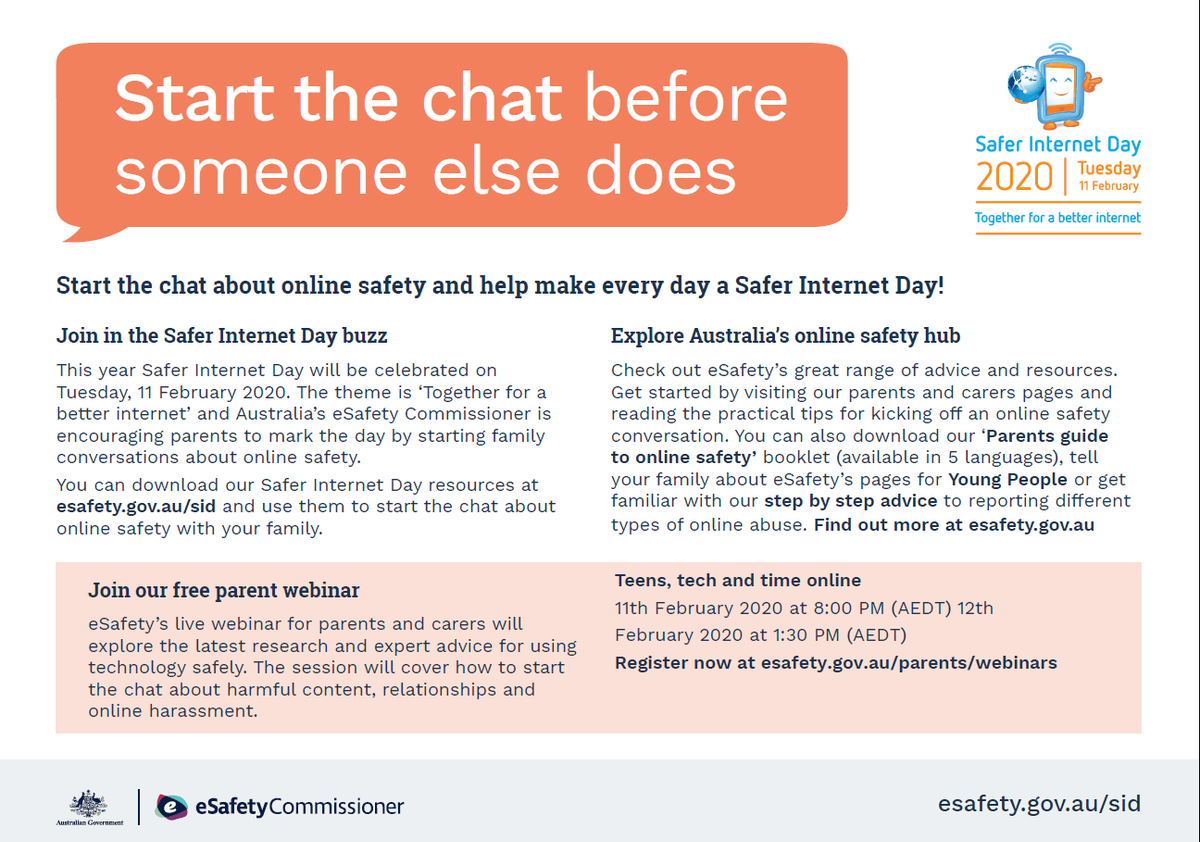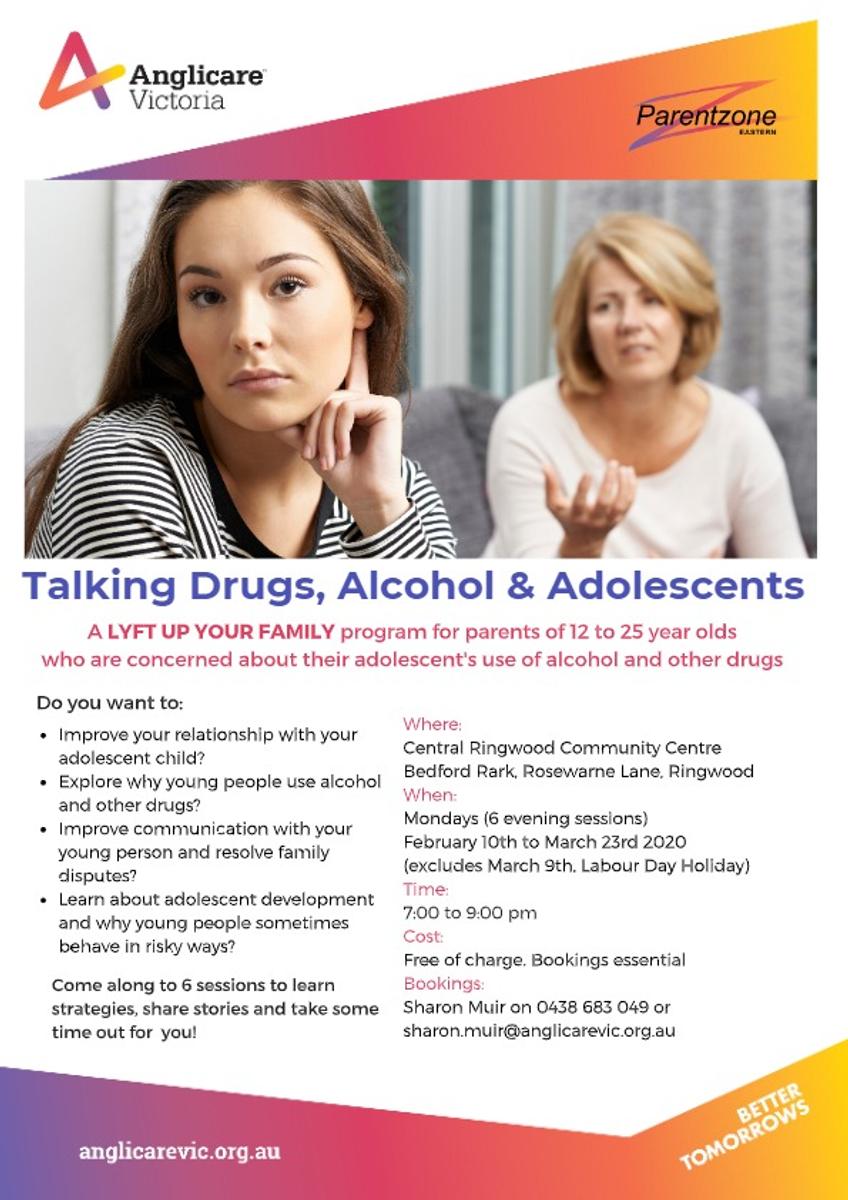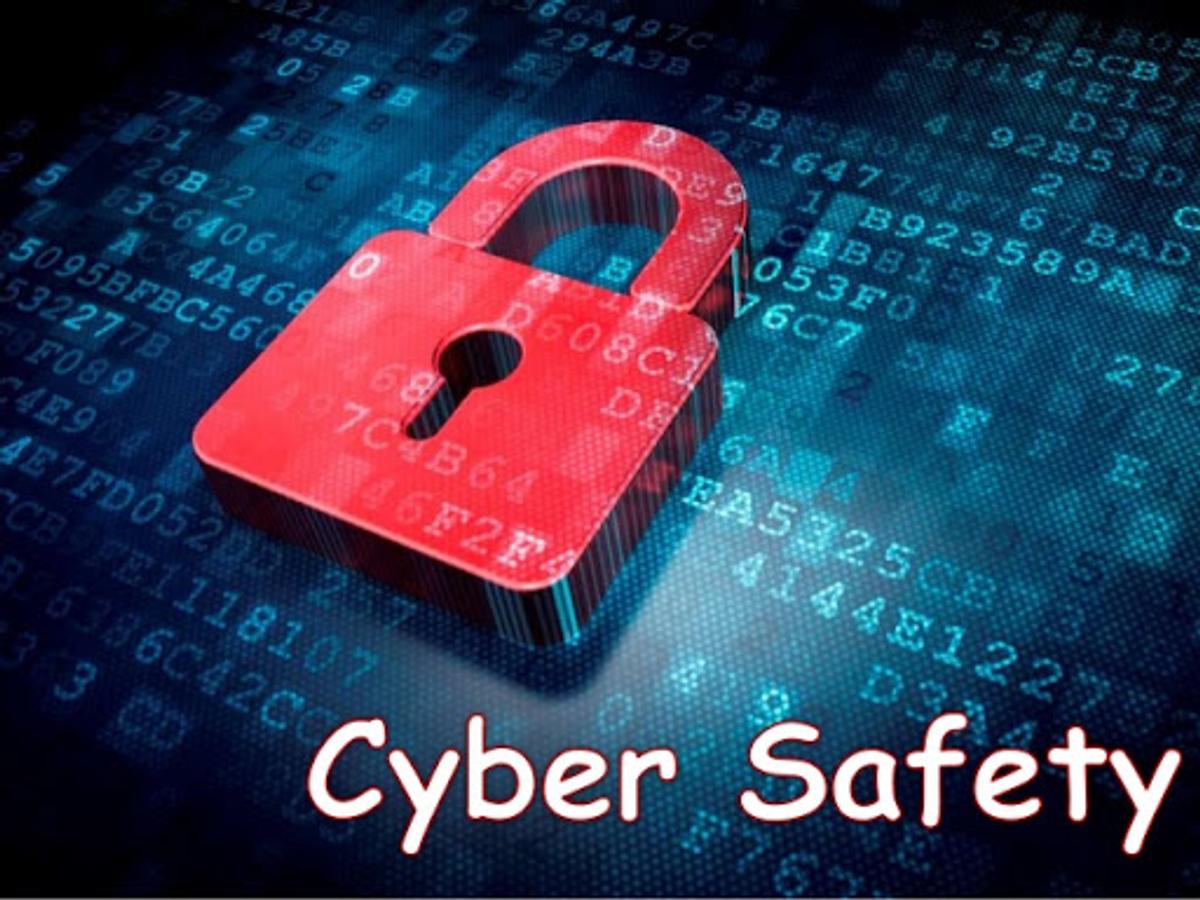Important Information

Safer Internet
Parentzone
Cybersafety
A scam is a fake scheme made by a dishonest individual, group, or company in an attempt obtain money or something else of value. Scammers are getting smarter, taking advantage of new technologies to target people. They try to get money from you or to steal your personal details so they can pretend to be you. Between 1 January and 31 May 2019, Australians lost $46.3 million through scams. Scams are always changing, many of us will be exposed to a scam at some time.
How scams work:
• You can be scammed online, phone, post or in person
• Scammers often pretend to be a government representatives, as people comply with requests from authority figures.
• Scammers try to gain trust by claiming to be from a well-known business or impersonate a known contact.
• Scammers often relate to your emotions to manipulate you.
• Scammers create a sense of urgency to get you to make decisions quickly, without thinking.
What to look for:
• If someone you don’t know contacts you out of the blue • Being asked to pay for something or give them money by unusual payment methods, e.g. gift cards, wire transfers, cryptocurrencies.
• Being asked to pay for something in advance.
• If someone you’ve never actually met in person asks for money.
• If something sounds “too good to be true”, e.g. online shopping deal, you’ve won a competition, have unclaimed inheritance, or been invited to invest in an ‘amazing’ scheme
• Being asked for personal information, e.g. bank details, computer passwords etc.
• Being pressured to buying something or to make a decision quickly.
How to protect yourself:
• Be alert to scams - always consider the possibility that it may be a scam.
• Don’t be pressured to act quickly to do something or make a decision.
• Know who you're dealing with – if unsure do an online search.
• Use strong passwords – use hard-to-guess passphrases that are easy to remember. • Don’t open anything that looks suspicious, e.g. texts, pop-up windows, links, attachments.
• Do not confirm identity via the contact details sent in email, do an online search.
• Don't allow anyone remote access to your computer unless you have contacted them. • Don’t be pressured into making decisions about money or investments.
• Be distrustful of unusual payment requests. • Always verify changes to payment details directly with the business or individual. • Use strong passwords, change them frequently and never share them.
• Avoid using public WiFi especially for online banking, sending/receiving personal information. • Use secure payment methods such as a credit card or PayPal for online shopping.
Useful websites:
www.moneysmart.gov.au Verify if companies have an Australian Financial Services License. www.scamwatch.gov.au/news/ subscribe-to-scam-alert-emails Subscribe for email scam alerts. https://www.esafety.gov.au/ esafety-information/esafetyissues/protecting-personalinformation Courtney Croxford |



